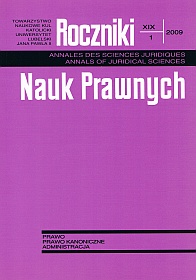Labour Law vs Private Law
Abstract
The private law method of regulating social relations plays a significant role in labour law, which is guided by the same system of basic notions as civil law, especially in the area of legal acts, agreements, defects, declarations of intent, and the like. An analysis of labour law principles suggests that they are not a barrier in the implementation of civil law institutions in the area of labour law in the era of market economy. However, they modify the use of these institutions with regard to the subject matter of such a relation as provision of employment and protection of a worker’s dignity.
It is encouraging to claim that labour law is a special branch of private law. This will mean that if labour law does not lend a particular interpretation to a certain notion, it must be understood uniformly in the whole area of private law. This also leads to presumption of the private legal regulation of labour relations.
Undoubtedly, in employment contracts there exist elements of public law, e.g. those concerning safety and hygiene of work. They are of minor importance, being subordinated to the realisation of basic private interest of an employee and the employer.
It seems, then, that labour law should be treated as part of broadly understood private law. This does not blur the distinction between civil law and labour law.
Copyright (c) 2009 Roczniki Nauk Prawnych

This work is licensed under a Creative Commons Attribution-NonCommercial-NoDerivatives 4.0 International License.


